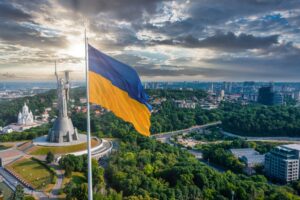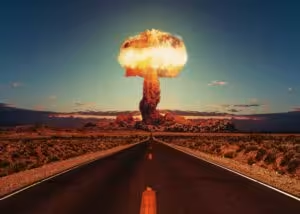Some time over the weekend of August 12-13 2000, while on a naval exercise inside the Arctic Circle, the Russian nuclear submarine Kursk sank to the bottom of the Barents Sea with all hands on board. The entire 118-strong crew perished on the Oscar II class submarine, built in 1994. According to the Russian navy, it had not been carrying nuclear warheads so there was never a danger of radiation leaks. A desperate Russian rescue operation over the following days, in which other countries including Britain offered their assistance, failed to establish radio communication with the stricken vessel, still less gain access to save the crew. Rescuers’ efforts were hampered by the icy waters, stormy weather and poor underwater visibility.
No one will ever know for sure what caused the disaster. The explanation generally held today, and one borne out by the findings of the official Russian inquiry, is that it was due to a faulty torpedo exploding as it was being prepared for use. The Russians admitted afterwards that the liquid fuel they had been using in their missiles was known to be unstable in certain conditions. As the captain struggled to bring the submarine to the surface there was a second and much bigger explosion – most likely another warhead – which tore a hole in the bow and probably killed most of the crew instantly. This explanation is supported by reports of two underwater explosions picked up by Western agencies monitoring the area at the time, as well as by the physical evidence of the wreck when it was finally brought up from the seabed by a Dutch salvage team more than a year after the accident. Public reaction in Russia to the authorities’ handling of the disaster was hostile, with victims’ families branding the official inquiry a whitewash.
When: August 12 or 13 2000
Where: Barents Sea, off the Arctic coast of Russia
Death toll: 118 Russian sailors died.
You should know: Vladimir Putin, who had taken over as president of Russia from Boris Yeltsin at the start of the year, was on holiday at the time and did not return immediately to Moscow. His handling of his first major crisis in office was widely criticized for its inadequacy and lack of sensitivity.























1 thought on “The Kursk Disaster – 2000”
they left those boys to die just to protect their silly meaningless secrets that are less than useless now I hope they are proud of that days work